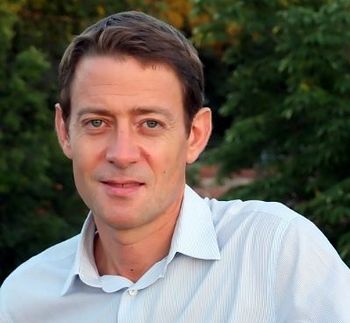
 We recently had a chance to sit down with Charles (in Orthodox Baptism, Jacob) Bausman, an American living in Moscow, who recently started Russia Insider, a media watchdog news site for news about Russia. Unlike most of the other Russia-related news websites such as The Moscow Times, for example, Charles’s site fairly covers topics related to the Orthodox Church.
We recently had a chance to sit down with Charles (in Orthodox Baptism, Jacob) Bausman, an American living in Moscow, who recently started Russia Insider, a media watchdog news site for news about Russia. Unlike most of the other Russia-related news websites such as The Moscow Times, for example, Charles’s site fairly covers topics related to the Orthodox Church.
The site has been remarkably successful. Launched in September of 2014, it rapidly became one of the leading global sources of news and analysis about Russia. Now Charles and his staff are launching a crowd-funding campaign on the largest American crowdfunding platform, Kickstarter (see his video here).
Charles has a fascinating family history. He was born in Frankfurt, Germany to an American father and German mother. His father, a foreign correspondent, brought the family to Moscow where they lived from 1968-72. After Moscow the family moved to a Connecticut suburb of New York City. He studied history at Wesleyan University, and later finance at Columbia Business School. He worked briefly as a journalist for NBC in Moscow from 1987–1990, then returned to New York to earn his MBA, and has worked on and off in Moscow since 1994 in finance and business. He first came to Russia as an adult in 1985 on a summer language program. Before starting Russia Insider he worked in private equity, specializing in large-scale industrial investment in agriculture.
Charles has appeared on Russian television, including the English version of RT. An interview about him and Russia Insider can be found here.
—Charles, it is interesting to see that after all your work in business and finance, you have returned to your father’s footsteps as a journalist based in Moscow. Could you talk a little about your father’s work here and the time of your childhood in the Soviet Union?
—Our family moved to Moscow when I was a small child and I lived here from age four to eight, from 1968-72, because my father was the bureau chief for the AP (Associated Press), a leading American news agency. This was during the height of the Brezhnev era.
My parents loved being in Russia and found it fascinating. They stayed in close touch with friends they made during that time, both Russian and non-Russian. I suppose they inculcated a fondness for the country in us four children.
After Moscow, we grew up in a suburb of New York City. In those years many Russian émigrés were coming through New York, and we had a steady stream of visitors to our home.
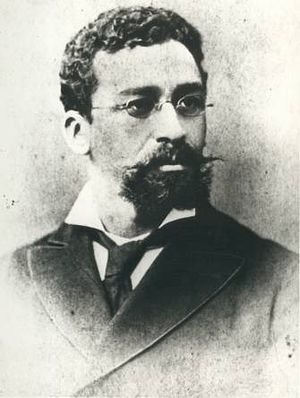 Richard T. Greener, the first African-American to graduate from Harvard
Richard T. Greener, the first African-American to graduate from Harvard—Your love for Russia extends even to its very soil. Could you tell us a little about your involvement in Russian agriculture, and how you see its future?
—Sure. I specialized in this for seven years, and know the topic very well. Russia’s agricultural potential is simply enormous, and as yet largely untapped; it represents a giant growth area for the country, more than is commonly understood.
There are a handful of barriers holding Russia back in this respect, but these barriers decrease with each passing year; and there is no question that Russia will make dramatic gains in this area. It is not a question of "if”, but of "when”.
—What led you to accept the Orthodox faith?
Raised Episcopalian as a young man, I rejected Christianity because I did not see how I could believe in what seemed to me to be irrational. I was, I suppose, an ambivalent atheist.
About fifteen years ago, I read some books that argue that in fact there is nothing irrational about Christianity, and that indeed atheism is more irrational than any religious faith. One of these is C.S. Lewis’s Mere Christianity. Another book that makes this argument indirectly is Bulgakov’s Master and Margerita.
I happened to be living in Moscow at the time, and being eager to explore these new ideas I sought out priests—who all turned out to be Russian—and they explained that there are significant differences in the three main branches of Christianity—Protestant, Catholic, and Orthodox—and that Orthodoxy holds certain advantages.
I studied their arguments and found them convincing. I also had the simply practical idea that, living in Russia, being Orthodox would allow me to participate in church services. Honestly, it was a bit of the "when in Rome, do as the Romans” kind of thinking. A bit superficial, I’m afraid.
It was only in subsequent years, thanks to experiences with deeply Orthodox friends, that I became very interested in Orthodoxy.
—Can you describe those experiences?
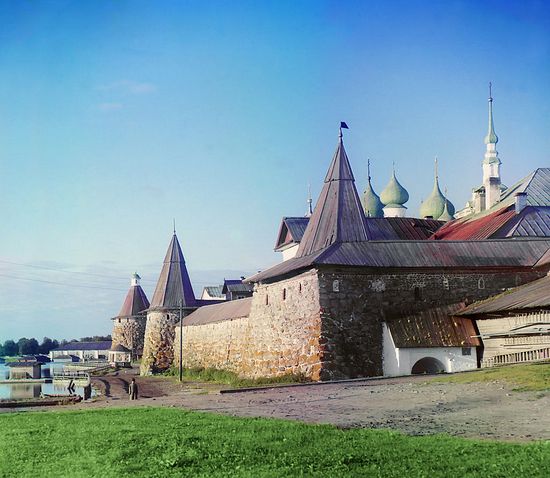
—Well one thing that made a big impression on me was a road trip I took one summer with a Russian Orthodox friend—it must have been around 2003—to various monasteries in northern Russia. We drove up to the White Sea, visited the Solovki monastery there, and stayed for a week at a smaller monastery nearby in the town of Kem, participating in the daily work. We then visited the St. Alexander of Svir monastery in Leningrad Region. These places seemed absolutely fantastical to me, because it was like stepping into a time machine, resurrecting a world that had existed centuries ago.
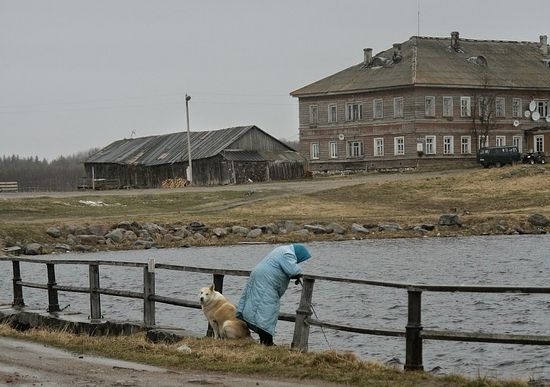
Since that time I always tried to visit monasteries when I had the chance. Coincidentally, my work in agriculture often took me to remote places off the beaten track and I always made a point to look into the local monasteries. I had the chance to spend quite a lot of time at the St. Tikhon’s Monastery in Zadonsk, in the Lipetsk region, and I’ve been to Optina Monastery. In both of these places, by coincidence some friends had joined the monasteries as novices, and so they showed me that world from the inside, allowing us to spend time with monks, working and praying with them, and talking to them about faith and life. I suppose this is where I learned a lot about Christianity, mostly by asking questions and talking. Once on a long stay with a friend on the island of Buyukada near Istanbul I got to know the monks from Mt. Athos at the St. George monastery there, and had remarkable discussions with them. Now that you make me think about it, there have been so many of these experiences, all very rich and rewarding.
—Have you any experience with other Local Orthodox churches?
Well, not really. My family lived in Connecticut in the early 2000s and we would go to a lovely ROCOR church in Nyack. I’ve also been to several of the ROCOR churches in the New York area.
—Have you delved into the writings of the holy fathers?
—I’m afraid hardly any. Except I have read a little bit of St. John Chrysostom on marital relations, and even translated some works about this from Russian into English as a favor to a priest friend.
—Back to your popular website. Where is Russia Insider based?
—We are a global network of people, so we really have no base—we are just networked via the internet.
—Who helped you develop the website?
—The whole thing was put together by volunteers. This is truly remarkable.
—Why do you make an effort to cover Orthodox topics?
—This has little to do with my faith, actually, and more with what I see as media bias. It is completely evident to me that the mainstream media basically ignores the story of Christianity in Russia, and when they do cover it, they give it a negative spin.
I think this is ridiculous. First of all the Christian revival in Russia is massively important and is having a huge effect on the society there. To ignore it is basically irresponsible journalism.
Furthermore, it is completely obvious to me that for the most part, it is a force for positive change in Russia. Sure, there are problems, and they need to be discussed. But to only focus on the problems is, again, hugely biased.
That is really what our site is about—exposing and countering bias in the media.
—What are some examples of misleading media coverage of Orthodoxy?
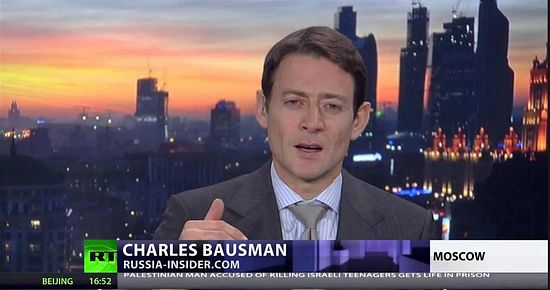
Russian Orthodoxy is portrayed in the western media with a relentlessly negative bias. I could give you dozens of examples. The church is criticized for having a close relationship with the government, violating the American principle of separation of church and state, without stopping to think that maybe this uniquely American idea isn’t really appropriate to Russia. The Russian state is, mind you, routinely demonized, and the so the Russian church must be quite sinister too, if it is working closely with it. If articles appear at all, which they rarely do, it is to focus on allegations of corruption, a badly behaved priest, or something like that. More recently, the homicidal attacks on Russian churches in Ukraine, of which there have been dozens, priests killed and tortured, churches bombed to smithereens, have been completely ignored by the mainstream media. It is really extraordinary. Russian Orthodox philanthropists like Mr. Malofeev are depicted as shady and inherently suspicious, while secular philanthropists are presented as shining examples of virtue. It goes on and on. It is really so extreme that it is almost comical, and it makes my life very easy, because it is so easy to point out the hypocrisy and bias.
—Why do you think this bias occurs?
You know, I grew up in journalistic circles, and understand that world very well, and the profession tends to attract more liberal, secular people. In the U.S., for example, if perhaps sixty percent of the population are practicing Christians, I would estimate that among journalists, that number must be less than ten percent. Then you have this recent phenomenon of what I would call "hostile atheists,” and that type of person I would guess is well-represented in journalism circles. So it’s a basic imbalance, and it really shows up when you analyze media coverage.
—Charles, we really wish you success with your website, and that you receive the all support you deserve.
Nun Cornelia (Rees) spoke with Charles Bausman
11 / 03 / 2015



_jpg/250px-ElbeDay1945_(NARA_ww2-121).jpg)





